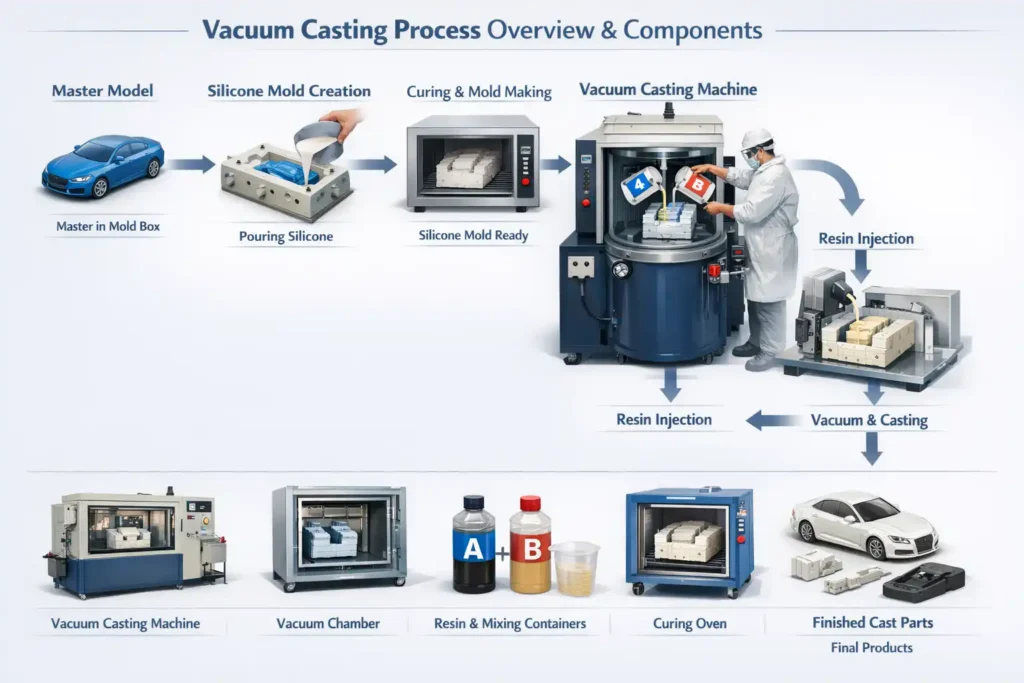Every time you click a website link, a silent process in the background quickly and safely connects you, thanks to the DNS (Domain Name System).
These DNS systems can fail or be misconfigured.
That is when DNS checkers come in handy. Such tools function like watchdogs, constantly monitoring the health and integrity of your DNS records. If you’re a site administrator, knowing about and employing DNS checkers is the difference between seamless performance and outright downtime.
In this article, we’ll examine how DNS checkers are crucial to your site’s security, load times, and overall user experience. Let’s dive in.
1. Detect DNS Misconfigurations
When you own a website, it is essential to have your DNS settings set up. A misspelled entry or an expired record can cause some serious problems, such as unavailability of a website, failure of email delivery, or incorrect forwarding.
With a DNS checker, you can continue to scan your DNS entries for A, AAAA, CNAME, MX, TXT, and other essential entries for errors. This utility helps you verify that your domain is correctly pointing to the correct IP address and that any associated services, such as email and subdomains, are functioning as expected. Without it, your visitors might not be able to access your website at all or might be redirected to an unwanted destination.
Utilizing a DNS checker will ensure your DNS infrastructure is clean, updated, and optimized. It gives you the confidence that your site is accessible and always functioning for every visitor.
2. Prevent DNS Spoofing and Hijacking
The DNS records on your website are a prime target for attackers to breach. Unauthorized access or modification of your DNS can result in it being used to redirect your users to malicious websites without your knowledge or consent.
This type of attack, whether hijacking or DNS spoofing, compromises your users’ data and damages your reputation. With a DNS checker, you can monitor your DNS records in real time and get alerts for any unexpected changes. This implies that you can notice unauthorized changes before they cause harm. Regular DNS checks help you ensure that your domain still points to the correct servers and has not been modified.
You can also make sure that your DNS provider’s security features, such as two-factor authentication and record locking and your domain registrar settings are in place. Active DNS monitoring safeguards your brand, secures user trust, and protects you from costly security breaches.
3. Enhance Website Uptime and Reliability
Your site’s accessibility relies significantly on the speed and health of your DNS servers. Your visitors may experience delays or be unable to access your website if your DNS servers respond slowly or become unavailable.
A DNS checker enables you to track the performance and availability of your DNS servers continuously. Using this tool, you can identify latency problems, timeouts, or outages before they reach your users. It also enables you to validate that your domain is resolving properly from multiple locations worldwide, ensuring constant access regardless of your users’ locations.
If you’re trusting third-party DNS providers, a checker helps to ensure that they are working to standards. Early notification through DNS monitoring enables you to respond promptly to any potential issues, ensuring your site remains fast, stable, and online. Overall, it helps you provide a glitch-free browsing experience and build trust in your users.
4. Verify DNSSEC Implementation
If you’re not playing around, securing your domain against tampering requires implementing DNSSEC (Domain Name System Security Extensions). DNSSEC places a cryptographic authentication layer over your DNS records that protects against tampering with responses your users receive.
Indeed, DNSSEC can be challenging to implement properly. That’s where a DNS checker can help. It helps ensure that DNSSEC is correctly enabled and your digital signatures are up to date and functioning as intended. You can detect problems such as expired signatures, missing records, or configuration inconsistencies before they cause service outages.
Without DNSSEC validation, your domain is vulnerable to cache poisoning and man-in-the-middle attacks. A DNS checker provides you with that sense of security, knowing your domain is secured with DNSSEC and your users are being directed securely to your authentic site, every time.
5. Improve Global Performance via CDN Validation
When you use a Content Delivery Network (CDN) to speed up your website, your DNS settings play a vital role in how efficiently content is delivered to your users. Your DNS must correctly point to the CDN’s edge servers to ensure that visitors are routed to the nearest and fastest server.
A DNS checker helps you confirm that your records are correctly configured and actively resolving to your CDN endpoints. If there’s a misconfiguration, users may be directed to the incorrect server, resulting in slower load times or inaccessible content.
With regular DNS checks, you can validate that your CDN setup is optimized for global performance, helping you deliver images, scripts, videos, and web pages with minimal latency. This ensures a smooth user experience across different regions. By using a DNS checker, you maintain control over performance and ensure your CDN is functioning exactly as intended.
Bottomline
From spotting misconfigurations and preventing attacks to boosting global performance with CDN validation, these tools give you the insights you need to stay ahead of issues before they affect your users.
With regular DNS monitoring, you’re not just maintaining your website—you’re actively protecting your brand, your visitors, and your online reputation. Don’t wait for problems to arise. Take control of your DNS today and ensure your website delivers the performance and security your audience expects—every single time.





